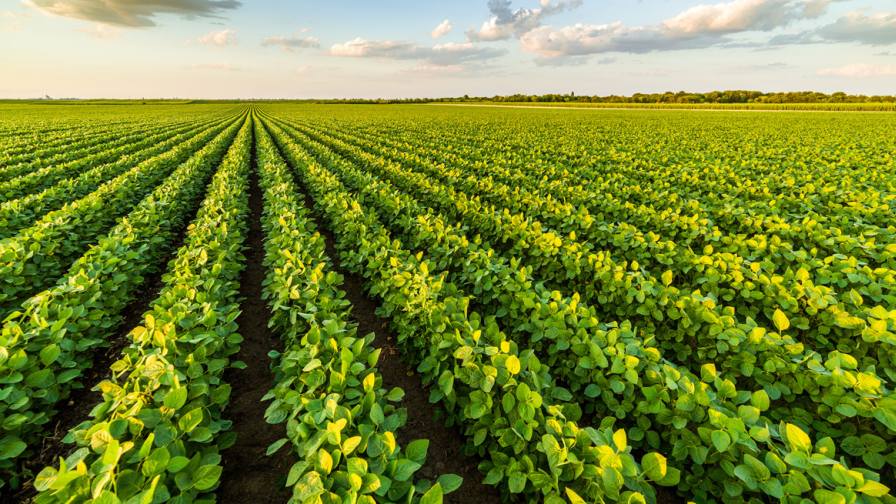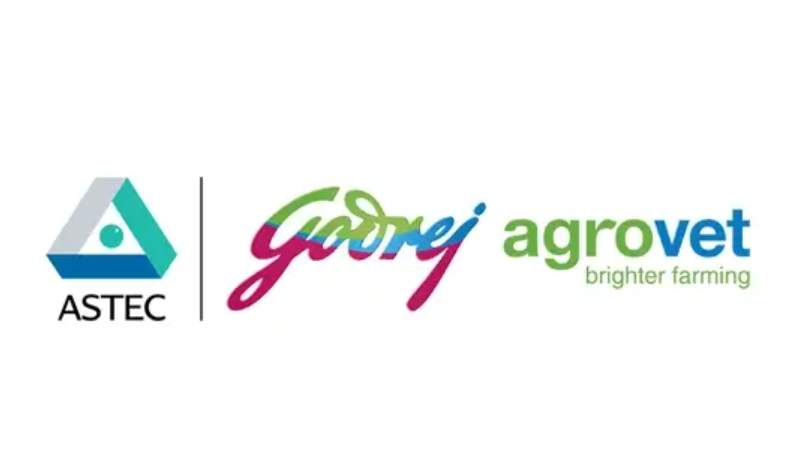Generics Rasing The Stakes
| Leading Generic Company Agrochemical Sales 2006 | |||||
|---|---|---|---|---|---|
| Rank | Company | 2006 (US$m) |
2005 (US$m) |
Growth 2006 over 2005 (%) |
|
| 1 | Makhteshim Agan | 1581 | 1543 | 2.5 | |
| 2 | Nufarm | 1245 | 1189 | 4.7 | |
| 3 | Cheminova | 604 | 596 | 1.3 | |
| 4 | United Phosphorus | 600* | 333 | 80.2 | |
| 5 | Sipcam | 351 | 375 | -6.4 | |
| 6 | Gowan | 240 | 233 | 3.0 | |
| 7 | AMVAC | 194 | 190 | 2.1 | |
| 8 | Atanor | 170 | 165 | 3.0 | |
| 9 | Rallis | 143 | 133 | 7.5 | |
| 10 | Sinon | 137 | 122 | 12.3 | |
|
*UPL includes full consolidation of Cerexagri in 2008. |
|||||
In 2006, generic products made up 39.6% of the agrochemical market. Of that, 27.4% of total industry sales came from generic companies. Phillips McDougall AgriService defines a generic company as “one that manufactures active ingredients (ais) and receives the majority of its sales from products that are off patent, and that were researched, developed, or first introduced by another company.”
Overall sales have increased by 2.7% to a total of US $5.265 billion for the 10 leading generics manufacturers. Contributing to this increase were several factors, such as the increasing sales and value of glyphosate and product divestments by R&D-driven companies. For the most part, though, the biggest names in generics have grown bigger in 2006 from company and product acquisitions.
Here are the Top 10 post-patent companies, and how they made the list:
Makhteshim Agan Industries – Israel
With a global market share of 4%, Makhteshim Agan Industries (MAI) ranks seventh in the complete global agrochemical market, which includes both proprietary and branded off-patent products. The group is number one in the off-patent segment.
MAI has held the top spot for several years, in part due to its far-reaching and comprehensive distribution network – two dozen marketing firms throughout Europe, the US, and Latin America with manufacturing facilities worldwide – and an impressive portfolio consisting of more than 90 internationally registered ais, 500 formulations, and over 4,000 registrations in 120 countries.
In 2006/07, the group added to this already imposing dossier by acquiring 60% of the Italian distribution company Kollant. The nearly 40-year-old Italian manufacturer and distributor of plant protection products had 2005 sales of US $30 million, mostly to Italy and other EU nations.
MAI also aquired 30% of Alligare, a US market and product research and development company; and 75% of distribution company Agrovita in the Czech Republic while setting up a distribution company in Russia – potentially one of the largest and swiftest growing agrochemical markets based on its vast agricultural area.
Regarding strengthening its position in the potential US $1.4 billion agrochemical market in Eastern Europe and Russia,MAI former President and CEO Shlomo Yanai said: “The companies in the Czech Republic and Russia join the recently opened Makhteshim Agan coordination center for Central and Eastern Europe in Budapest and the existing distribution network, comprised of companies in Poland, Hungary, and Romania, which together with our extensive product portfolio will enable us to significantly increase our group sales in this growing and important region.”
At the same time, MAI’s Colombian subsidiary Proficol expanded its South American presence through the acquisitions of Ecuadorian generics distributors Agroproteccion and Agromedio, which have registrations of over US $18 million with 70 distributors and annual growth of 35% over the last three years.
Nufarm – Australia
With manufacturing and marketing operations throughout the world – specifically Australia, New Zealand, Asia, the Americas, and Europe – Nufarm has the organization set up to sell products in over 100 different countries. It added to this impressive system in 2006 with the acquisition of Australia’s foremost canola seed production and marketing company, Dovuro Seeds, and Nutrihealth Pty Ltd., an Australian canola specialty seed breeding company, significantly strengthening and consolidating its seed position. The two acquisitions give the company, according to a press release, “a market-leading position in canola across conventional, hybrid, and specialty seed products.”
On the European front, Doug Rathbone, Nufarm’s managing director, has said: “Italy is one of the major agricultural markets in Western Europe and the only major market in that region where Nufarm does not currently have an operational presence.” This was quickly remedied when the company acquired Italian crop protection company Agrisol, known mostly for insecticides and fungicides. With this acquisition, Nufarm took possession of Agrisol’s distribution business, customer lists, and 130 product registrations, as well as its pipeline of new products scheduled for approval over the next few years. At the time of the buyout, Nufarm’s Italian sales totaled over US $7.1 million; Agrisol’s sales of almost US $9.3 million will help Nufarm’s sales in Italy to expand rapidly.
Also in 2006, Nufarm took 100% ownership of Agripec, Brazil’s eighth-largest crop protection company. Planning to use Agripec as a platform to develop new business opportunities in Brazil, which Rathbone calls “one of the world’s most exciting growth markets,” he stated, “I am extremely confindent that this development will strengthen our opportunities as we see continued expansion of, and investment in, agriculture in Brazil.”
Cheminova – Denmark
Denmark-based Cheminova is represented through subsidiaries in 19 countries in North and South America, Asia, the EU, and Eastern Europe. It expanded its base by acquiring Hungarian plant protection and nutrition distributor Kerolagro, which has a turnover of approximately US $3.83 million. Kerolagro will continue its broad existing product portfolio, while adding Cheminova products. The Hungarian company will change its name to Cheminova Magyarország, says Cheminova Sales and Marketing Vice President Jesper K. Hansen. He added: “We believe that Kerolagro, together with our newly established sales and marketing organizations in Romania and Bulgaria, will form an excellent platform for Cheminova’s growth in the important Central European market.”
The addition of Kerolagro will enhance Cheminova’s position as a leading generic agrochemical manufacturer and distributor, as will its December 2006 acquisition of global rights to Bayer CropScience’s insecticide acrinathrin. Acrinathrin – which has primary markets in Japan, Brazil, Chile, and Colombia – has been marketed in Europe by Cheminova since 2002.
Cheminova is also focused on corporate responsibility, which revolves around the safe use and phase-out of the most toxic pesticides in Third World countries, environmental aspects related to its production facilities in India and Denmark, and supplier management.
United Phosphorus – India
The largest acquisitions of the year, however, were made by India’s largest agrochemical company, United Phosphorus Ltd. (UPL). In 2006, the company made six major acquisitions, starting with the important purchase of global seed and seed technology supplier Advanta Netherlands Holdings BV – which has a history dating back to the 19th century – purchased in February 2006 by UPL’s subsidiary Biowin Corporation Limited, based in Mauritius. Executive Director of UPL Jai Shroff said: “The acquisition of Advanta allows UPL to jump start our entry in the high end of the seeds business where the future of agriculture growth lies. This transaction not only makes us the largest player in some segments, but also gives us leadership positions in many important products.”
UPL also took complete control of South African agrochemical company Cropserve, which holds registrations for the production of lenacil and chloridazon from Agricola, which have a market size of close to US $143 million.
After acquiring products from Bayer CropScience in August 2006, UPL purchased DuPont’s rice and aquatic herbicide bensulfuron-methyl in September; two months later, the company bought Cerexagri – a crop protection manufacturer and distributor with facilities around the world – from Arkema. The acquisition of products such as asulam, oxydemeton, trichlorfon, propanil, and bensulfuron have raised UPL’s stake in global agrochemicals.
UPL finished the year with the acquisition of Dow AgroSciences LLC’s global propanil herbicide business. Propanil has more than 100 registrations in over 30 countries in North America, Latin America, Europe, Africa, and Asia/Pacific; the product and its formulations had a 2005 turnover of US $18.9 million.
With these acquisitions added to UPL’s network of over 36 subsidiaries, the company’s global marketing network exports to over 100 countries, primarily in Europe and North America. International revenues account for over 70% of UPL’s total sales.
Sipcam-Oxon Group – Italy
The Sipcam-Oxon Group has been active in the production and formulation of agrochemical products since 1946. While it considers itself a medium-sized company, Sipcam has subsidiaries in over a dozen countries worldwide and runs a widespread marketing network. The majority of its focus has been in Europe, particularly Italy, Germany, France, Spain, Portugal, Hungary, and the UK. More recently, sales into the Americas – mostly US, Mexico, and Brazil – have contributed to revenue and opened the door for a 50%-50% South American venture with fellow Italian agrochemical company Isagro SpA.
In January 2006, Isagro and Sipcam set up the joint venture Isagro Sipcam International, which seeks to acquire stakes in agrochemical distributors and focuses on development, distribution, and formulation activities. As part of the deal, Isagro acquired 50% of Sipcam’s Brazilian operation, Sipcam Agro – which has operated in Brazil since 1979 – for US $21.5 million. Isagro Sipcam International purchased a 75% stake in the Colombian distributor Barpen, and a 51% stake in the Argentine distributor, Agro Max.
Gowan, Inc. – US
Since 1963, US-based Gowan has provided crop protection products for niche markets of agriculture. This continued through 2006 as the family-owned company introduced several new products.
Starting in February, Gowan launched X-tra Strength Avadex BW — a more highly concentrated version of the cereal herbicide Avadex BW — which offered growers such benefits as lower use rates, elimination of the need for specialized granular application equipment, and easy impregnation on fertilizer.
April brought new US federal tolerances for Onager for apples, pears, and grapes; and for citrus in California, Arizona, and Texas.
In September, through a partnership with Nissan Chemical, Gowan added Yukon herbicide for use in sugarcane, field corn, field corn grown for seed, and grain sorghum. Yukon controls broadleaf weeds with resistance or tolerance to glyphosate and ALS-inhibiting products, as well as postemergence sedge control. Nick Alonso, Gowan product manager, said: “Our mission is to continually provide producers with top quality and effective crop protection products.”
AMVAC Chemical Corp. – US
American Vanguard Corp.’s subsidiary AMVAC was in 2006 named to Forbes’ list of 200 Best Small Companies for the fourth year. AMVAC, founded in 1969, states its leading growth strategy as acquiring and licensing niche product lines from larger companies in the industry.
AMVAC did just that in 2006, acquiring BASF’s Counter insecticide product line and the Lock ‘n Load closed delivery system for granular products. The Counter line, as well as Phorate – which AMVAC acquired in 2005 from BASF – are marketed in Lock ‘n Load. Counter alone generated approximately US $25 million in 2005, mainly in North and Latin America. The systemic insecticide-nematicide is registered in more than 20 countries.
American Vanguard’s President and CEO Eric Wintemute described the acquisition as “our largest to date. The Lock ‘n Load closed delivery system offers terrific synergies with our SmartBox delivery system, and we are quickly emerging as a leading owner and provider of safe granular delivery technology.”
AMVAC’s SmartBox delivery system had already received a boost earlier in the year when the company entered into an exclusive, multi-year licensing agreement to market, sell, and distribute Dow AgroSciences’ Lorsban 15G insecticide in the US. Lorsban became the first license deal between AMVAC and Dow, and the fifth product to be marketed through the SmartBox system. AMVAC Senior Vice President and Director of Business Development Glen Johnson said, “We see this agreement as an important opportunity to further develop the positioning of SmartBox as the delivery system of choice for granular insecticides.”
In another exclusive multi-year agreement with Bayer CropScience LP, AMVAC will market, sell, and distribute the fungicide Bayleton in the US.
Atanor – Argentina
Since 1938, Atanor has been active in the Argentine market, synthesizing and producing herbicides since 1954. Several plants and factories in the country support it as the sole producer of MERCOSUR 2,4-D, the sole worldwide 2,4-D and industrially integrated 2,4-DB producer, and the second worldwide atrazine producer. The company holds registrations in Australia, Bolivia, Cuba, Guatemala, Mexico, and the US.
In addition to foreign offices in Chile, Paraguay, and Uruguay, Atanor began construction in January 2006 of a glyphosate plant in Brazil after receiving authorization from Brazil’s agriculture ministry to produce the generic form of the chemical. This authorization was Brazil’s first approval of a generic product.
Later in 2006, Atanor entered an agreement with leading Chinese agrochemical company Anhui Huaxing Chemical Industry Co., Ltd. The 50/50% joint venture, to be called Anhui Huaxin ATANOR Chemical Co. Ltd., will have US $16 million in registered capital.
Rallis – India
This Indian company can trace its roots as a trading company back to 1815. In the 1990s, it identified agribusiness as its core strength and consolidated its position in pesticides, fertilizers, and seeds. Today, in addition to producing and distributing agrochemicals, Rallis has set upFarm Management Services (FMS), which is committed to contract farming and helping farmers raise finances for their inputs and receiving fair prices for their harvest.
To increase its own finances in 2006, the company launched the insect growth regulator Applaud, which would protect coastal belt paddy crops from the brown plant hopper and white fly. Rallis India Managing Director V.S. Sohoni described the product as “effective as well as eco-friendly.”
In 2005, Rallis started a safety awareness program in association with CropLife India, intended to educate growers on new agrotech practices and safe and effective use of new pesticides. This included Bacillus thuringiensis cottonseed, which the company plans to launch (Bollgard II) next year.
Sinon Corp. – Taiwan
Established in 1955, Sinon Corp. was founded when Mr. Yang Tien-Fa joined in a partnership to manufacture and distribute agrochemicals. It was listed on the Taiwan Stock Exchange in 1989. After setting up local supply centers throughout the island in 1982, Sinon went global in the mid-90s, establishing offices in France, Brazil, Austria, Thailand, and Mexico. Currently, licenses are held in more than 33 nations worldwide.
In 2006, the company was threatened with a herbicide duty by the EU, meant to protect local producers from cheaper imports. The company was exempted from the 29.9% tariff on glyphosate after a probe into whether Sinon had a previously undisclosed link to a Taiwanese exporter who was subject to the five-year levy. It is still possible that the exemption could be revoked.





